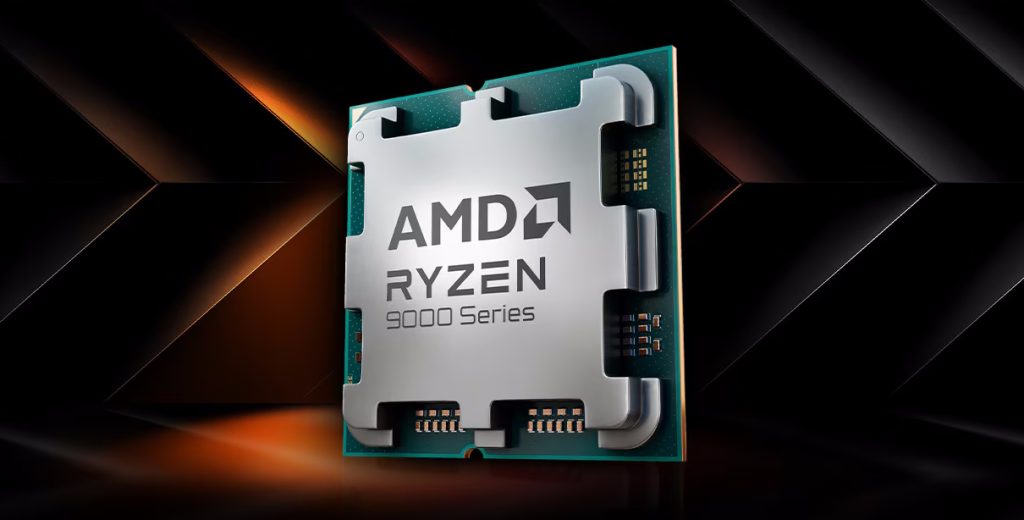During the review process, a lot of Ryzen 9000 testers faced disappointing results from benchmarks, below the expectations set by AMD's pre-launch internal benchmark numbers. Today, AMD has officially responded, with an extensive blog post going over gaming performance. Leo is also hard at work re-running some tests for a future video.
Here is AMD's explanation for AMD-generated gaming data differing from reviewer benchmarks:
“For our Ryzen 9000 launch, AMD internal labs generated data that showed a 9% average generational uplift in 1080P gaming versus Ryzen 7000 Series, and an average of 6% higher performance across more than 30 games when compared against the competition’s best. Not all reviews are seeing these results, and this reflects the complexity of high-performance PC testing today given the number of system and software variables. There are several factors specifically creating these differences in some Ryzen 9000 reviews:
- The AMD gaming test suite includes a broad set of esports, AAA, and popular older games, which are a combination of CPU- and GPU-bound titles. Game performance conclusions can be influenced significantly by the makeup of the test suite.
- AMD tested Intel configurations using comparable DDR5-6000 memory as well as Intel default settings-baseline power profile which can have a small impact on gaming performance.
- AMD also tests with Windows Virtualization-based Security (VBS) enabled. This is the default Windows behavior and Microsoft recommends activating VBS to improve security, however it can affect gaming performance.
The “Zen 5” architecture incorporates a wider branch prediction capacity than prior “Zen” generations. Our automated test methodology was run in “Admin” mode which produced results that reflect branch prediction code optimizations not present in the version of Windows some reviewers used to test Ryzen 9000 Series.”
AMD demonstrates how the Windows version installed can impact gaming performance with fresh tests with the Ryzen 9 9950X on Windows 11 24H2 and Windows 11 23H2 in the table below, showing that some games do indeed see significant performance improvements when using Windows 11 Version 24H2:
| Ryzen 9 9950X
24H2 |
Ryzen 9 9950X
23H2 |
Performance Delta | |
| Far Cry 6 | 183 | 162 | +13% |
| Cyberpunk 2077 | 200 | 188 | +7% |
| Hitman 3 | 358 | 347 | +3% |
| Watch Dogs: Legion | 165 | 165 | No change |
| Cinebench 2024 Single Thread | 140 | 140 | No change |
| Procyon Office | 10,288 | 9,829 | +6% |
The tests shown in the table were performed at 1080p resolution with ‘High' graphics settings. The reason for the performance gains with Windows 11 24H2 is the inclusion of AMD-specific branch prediction code, enabling better performance all around. However, this version of Windows 11 is currently only available through the Windows Insider Program. Currently, this Windows Update is in the Release Preview Channel, which means Microsoft will be planning to roll it out to all users quite soon. In the meantime, AMD is “collaborating with Microsoft” to try and get these code optimisations pushed out earlier via an optional update in Windows 11.
According to AMD, Zen 5 CPUs will see the biggest upgrade with this Windows update, but Zen 4 and Zen 3 CPUs should also see some improvements.
Discuss on our Facebook page, HERE.
KitGuru Says: Leo is currently re-running some Ryzen 9000 tests, so stay tuned for updated benchmarks and comparisons in the very near future.
 KitGuru KitGuru.net – Tech News | Hardware News | Hardware Reviews | IOS | Mobile | Gaming | Graphics Cards
KitGuru KitGuru.net – Tech News | Hardware News | Hardware Reviews | IOS | Mobile | Gaming | Graphics Cards



